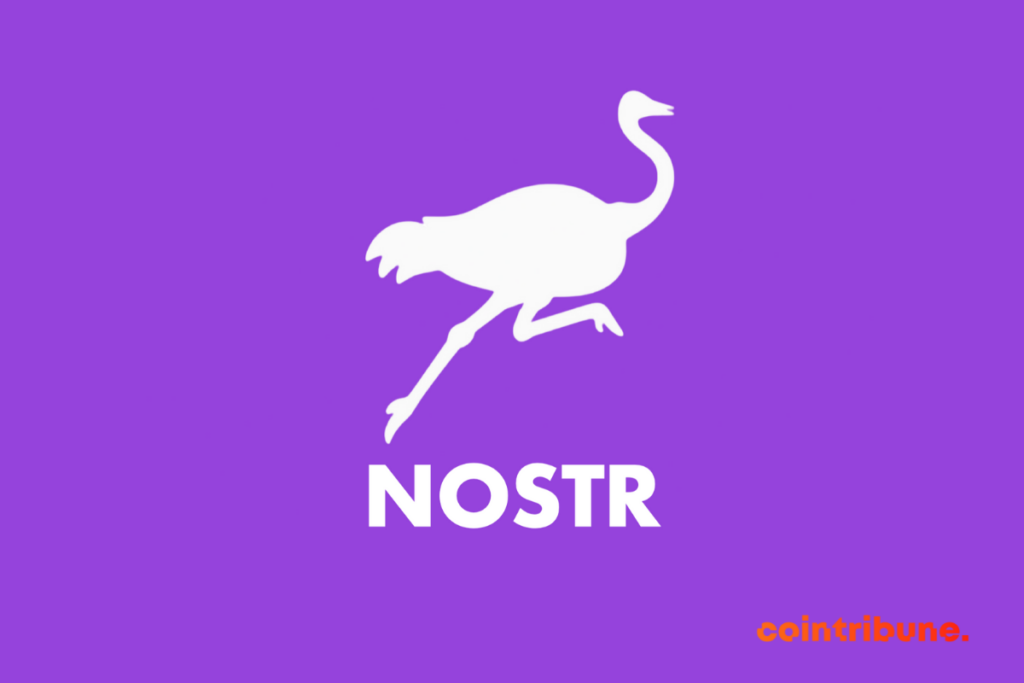Nostr and Censorship: Why Decentralization is Essential
In the digital age, censorship on social networks has become a major concern, with instances of content removal and account deactivations raising questions about freedom of expression. Dominant centralized platforms tightly control user data and access, leading to arbitrary content regulation. Nostr emerges as a potential solution, leveraging decentralization to offer an alternative where users can communicate without fear of interference. This article explores the rise of censorship and presents the specifics of Nostr, this decentralized social network.

The Rise of Censorship on Centralized Platforms
In today’s connected world, social networks play a crucial role in information dissemination and public opinion formation. However, the centralization of these platforms has led to increased censorship, where a few entities control data and the visibility of user posts. Notable examples include content removal or account deactivation, often justified by terms of service violations but sometimes perceived as acts of political or social censorship. This centralization leaves traditional social network users with little recourse against such actions, highlighting the need for alternatives where censorship is more challenging to enforce.
Nostr: A Decentralized Alternative
Nostr stands out as an emerging platform in the social network ecosystem, offering a new avenue for online communication and interaction free from centralized censorship constraints. By relying on a decentralized protocol, Nostr allows users to share information freely, using blockchain technology to secure data and interactions.
How Nostr’s Decentralized System Works
The Nostr protocol is based on an infrastructure where no central server controls the shared information. Users connect to a network of relays, which are servers chosen by the users themselves to distribute their messages. This architecture ensures that each client has the freedom to publish without interference from a central authority, crucial for maintaining a censorship-resistant platform open to diverse opinions.
Nostr relays do not store data permanently, meaning information flows freely without being held or altered by third parties. Clients, the applications that allow users to access the network, play a key role in data management. They enable users to filter the content they wish to see and contribute to the collective moderation of the network.

Advantages of Decentralization for Users
Decentralization offers Nostr users unprecedented control over their data. Unlike traditional social networks, where data can be used for commercial purposes or monitored by government entities, Nostr ensures that information remains private and secure. Those using Nostr benefit from full transparency on how their data is managed and can make informed choices about relays and clients.
Moreover, Nostr enables Bitcoin payment integration, adding an extra layer of security and financial autonomy. Bitcoin transactions on the Nostr network are secured by the blockchain, ensuring users can support relays or content creators without exposing their identities or financial information.
Challenges and Growth Potential
Despite its advantages, Nostr faces challenges inherent to any decentralized system. Scalability is a major concern, as the network’s ability to handle many users depends on the robustness of relays and the efficiency of clients. Content moderation, although managed in a distributed manner, still requires effective mechanisms to prevent misinformation while preserving freedom of expression.
Technically, decentralization can lead to scale and performance issues, as the network relies on the capacity and reliability of user-operated relays. Content moderation is also a thorny issue. Without a central authority, the responsibility for moderation rests on users and client application developers, potentially leading to a broader dissemination of misinformation. The governance of these networks is complex and requires a new approach to balance freedom of expression and the fight against harmful content.
However, Nostr’s growth potential is significant. As an open platform, it attracts a global community of users and developers contributing to its evolution. With the growing adoption of blockchain technology and awareness of privacy and censorship issues, Nostr could become a major player in the social network landscape, redefining how users interact on the web.
In summary, Nostr presents a promising vision for the future of social networks, where decentralization and privacy are paramount. As a censorship-resistant protocol, it offers users a platform where freedom of expression is reinforced by blockchain technology. Technical challenges remain, but Nostr’s potential to create an open and unregulated dialogue space is immense. As the world moves towards increased awareness of digital rights, this network with its multiple clients could mark the beginning of a new era for online communications.
Maximize your Cointribune experience with our "Read to Earn" program! For every article you read, earn points and access exclusive rewards. Sign up now and start earning benefits.
Diplômé de Sciences Po Toulouse et titulaire d'une certification consultant blockchain délivrée par Alyra, j'ai rejoint l'aventure Cointribune en 2019. Convaincu du potentiel de la blockchain pour transformer de nombreux secteurs de l'économie, j'ai pris l'engagement de sensibiliser et d'informer le grand public sur cet écosystème en constante évolution. Mon objectif est de permettre à chacun de mieux comprendre la blockchain et de saisir les opportunités qu'elle offre. Je m'efforce chaque jour de fournir une analyse objective de l'actualité, de décrypter les tendances du marché, de relayer les dernières innovations technologiques et de mettre en perspective les enjeux économiques et sociétaux de cette révolution en marche.
The views, thoughts, and opinions expressed in this article belong solely to the author, and should not be taken as investment advice. Do your own research before taking any investment decisions.